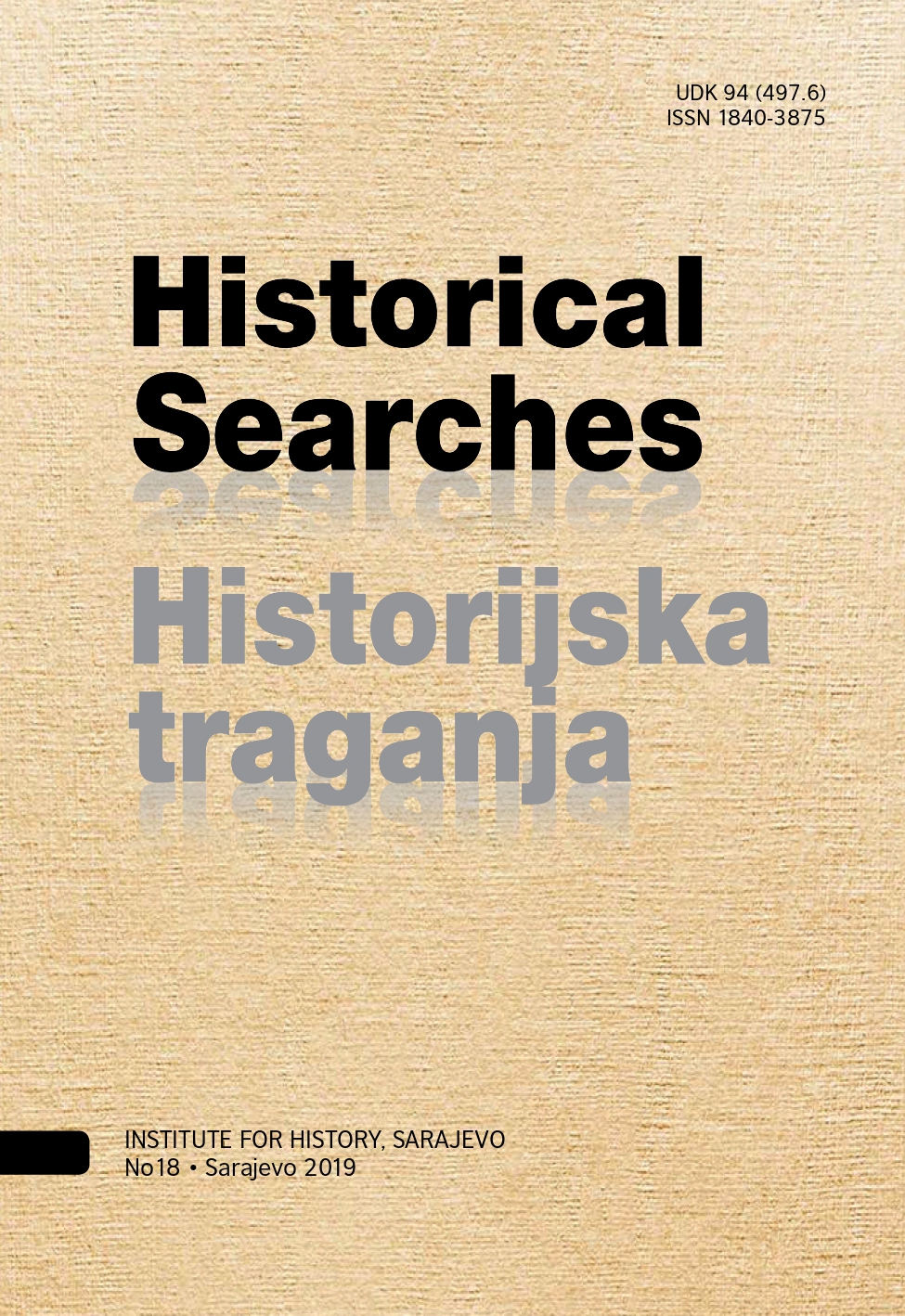Srpska nacionalno-kulturna inteligencija u Bosni i Hercegovini o kulturnom identitetu Bosne i Hercegovine kroz rasprave o jeziku 1965–1972.
Serbian National-Cultural Intelligentsia in Bosnia and Herzegovina about Cultural Identity of Bosnia and Herzegovina Through Discussions on Language 1965–1972.
Author(s): Sabina VeladžićSubject(s): Language studies, Recent History (1900 till today), Nationalism Studies, Sociology of Culture, Post-War period (1950 - 1989), Identity of Collectives
Published by: Institut za istoriju
Keywords: Bosnia and Herzegovina; Serbian national cultural intelligentsia; cultural identity; national-cultural discourses; Serbo-Croatian language; Novi Sad Agreement; Jovan Vukovic;
Summary/Abstract: During 1960s, due to major conceptual and constitutional restructuring, aimed at building the Yugoslav self-governing socialism with a human character, Yugoslavism as socio-cultural, i.e. supranational-cultural concept had been suspended and substantively revised. Its basis, since 1954, according to the Novi Sad Agreement, was to be Serbo-Croatian/ Croato-Serbian unique/unified language. Following the principles of the Agreement, the socio-linguistic reality of the so-called Serbo-Croatian cultural area, i.e. of Bosnia and Herzegovina, Montenegro, Serbia and Croatia, should had been directed towards the greatest possible cultural unification. During the conclusion of the Novi Sad Agreement, members of the Serbian cultural intelligentsia dominated by number, as well as ideologically, in anticipation of the Yugoslav cultural, linguistic and social unity. Yet, realization of the desired future of the imagined Yugoslav community was endangered by discussions about language and literature, initiated in the mid-1960s by the Croatian cultural intelligentsia, which eagerly pointed out at the oppression against the Croatian national-cultural being. They revised the discourse that legitimized the current literary and linguistic policy, pointing at its unitarian essence, as well as at the existing discrepancy between the linguistic policy and its principles on one side and the social, national-cultural, i.e. linguistic realities on the Serbo-Croatian cultural area on other side. During 1960s, members of the Croatian cultural intelligentsia, referred to Bosnia and Herzegovina as to a Belgrade linguistic colony, consequently initiating discussions on its linguistic, national-cultural, and historical identity. The following text provides an analysis of the discourse of the Serbian national-cultural intelligentsia in Bosnia and Herzegovina, a discourse that, in the 1960s and early 1970s, constituted a significant segment of the discussions on the linguistic, in fact, national-cultural identity of the Central Yugoslav Republic.
Journal: Historijska traganja
- Issue Year: 2019
- Issue No: 18
- Page Range: 83-113
- Page Count: 31
- Language: Bosnian

